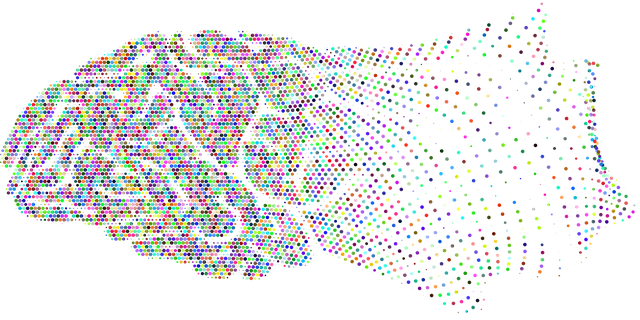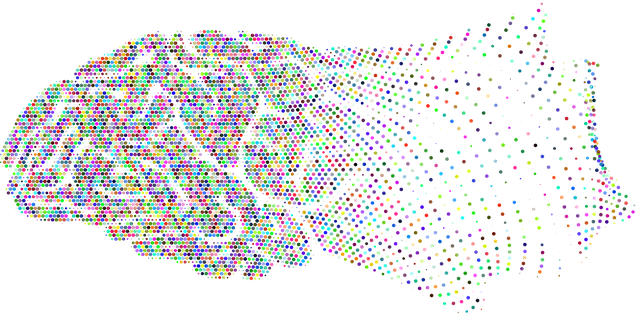Englewood, facing unique mental health challenges, including elevated rates of panic disorder and anxiety attacks, is empowering its residents through comprehensive initiatives. These strategies involve tailored therapy programs, community outreach with cultural competency training, and advocacy for Trauma Support Services. By combining workshops, social media, and local events, Englewood is building a supportive network to enhance therapy accessibility. Using evidence-based CBT techniques and culturally sensitive approaches, coupled with funding partnerships and stigma reduction campaigns, the community aims to address its specific needs related to panic disorder and anxiety attacks effectively.
Englewood, a community grappling with panic disorder and anxiety attacks, serves as a compelling case study for the impact of community outreach programs. This article explores strategies for effective initiatives aimed at alleviating these mental health challenges. We delve into understanding the unique needs of Englewood residents, offering practical steps to implement therapy initiatives, and providing a step-by-step guide tailored to this specific context, focusing on Englewood Panic Disorder and Anxiety Attacks Therapy.
- Understanding Englewood: A Community Affected by Panic Disorder and Anxiety
- Strategies for Effective Community Outreach Programs
- Implementing Therapy Initiatives in Englewood: A Step-by-Step Guide
Understanding Englewood: A Community Affected by Panic Disorder and Anxiety

Englewood, a vibrant community, has long grappled with unique challenges that significantly impact its residents’ mental well-being. The area is known to have higher rates of panic disorder and anxiety attacks, making it a focal point for mental health initiatives. This community faces complex issues stemming from historical trauma and socioeconomic factors, which contribute to elevated stress levels and a sense of fear among its population.
Understanding these nuanced problems requires a comprehensive approach. Implementing tailored programs like therapy sessions specifically addressing panic disorder and anxiety can be transformative. In light of this, organizations focused on Mental Health Policy Analysis and Advocacy play a pivotal role in pushing for Trauma Support Services that cater to the specific needs of Englewood residents. Additionally, Stress Management Workshops Organization initiatives can empower community members with tools to cope, fostering resilience against these pervasive mental health issues.
Strategies for Effective Community Outreach Programs

Englewood community outreach programs can significantly enhance mental health services, particularly for conditions like Panic Disorder and Anxiety Attacks. Effective strategies involve tailoring initiatives to meet specific cultural needs, ensuring accessibility and trust within diverse communities. Incorporating cultural competency training for healthcare providers is vital; it fosters understanding and sensitive interactions, encouraging individuals to seek help without fear of judgment or language barriers.
Beyond training, engaging community leaders and utilizing accessible platforms can amplify outreach efforts. Promoting stress management techniques and positive thinking through workshops, social media, and local events builds resilience and empowers residents to take charge of their mental well-being. These inclusive approaches not only improve individual lives but also create a more supportive and connected Englewood.
Implementing Therapy Initiatives in Englewood: A Step-by-Step Guide

Implementing Therapy Initiatives in Englewood: A Step-by-Step Guide
1. Identify Community Needs and Collaborate with Local Leaders: The first step is to assess the mental health landscape in Englewood, focusing on areas with high rates of panic disorder and anxiety attacks. Collaboration with local community leaders, healthcare providers, and residents is crucial to understand specific challenges and identify suitable locations for therapy initiatives.
2. Develop Tailored Programs Using Mental Wellness Coaching: Based on the assessment, design programs that cater to the unique needs of Englewood’s population. Incorporate evidence-based practices such as cognitive-behavioral therapy (CBT) to address panic disorder and anxiety. Integrate communication strategies and self-esteem improvement techniques to enhance program effectiveness. Ensure these programs are accessible, culturally sensitive, and tailored to different age groups and life stages.
3. Secure Funding and Partnerships: Fundraising is essential for program sustainability. Seek grants, donations, and partnerships with organizations supporting mental health initiatives. Engage with local businesses, schools, and community centers to leverage resources and expertise.
4. Train and Deploy Mental Health Professionals: Recruit and train qualified therapists, counselors, and mental wellness coaches. Ensure they are equipped with the latest techniques and understand the cultural context of Englewood. Regular training sessions should be organized to keep professionals updated and maintain high-quality care.
5. Establish Accessible Therapy Spaces: Transform suitable community spaces or partner with existing facilities in Englewood to create safe, comfortable environments for therapy sessions. Consider accessibility, safety, and confidentiality when selecting locations.
6. Promote Awareness and Reduce Stigma: Launch informational campaigns to raise awareness about panic disorder and anxiety attacks, emphasizing the availability of local therapy programs. Collaborate with community influencers and utilize social media platforms to combat stigma and encourage residents to seek help without fear of judgment.
7. Monitor Progress and Adapt Programs as Needed: Regularly evaluate program effectiveness through feedback from participants and professionals. Make data-driven adjustments to ensure the initiatives remain relevant and impactful in addressing Englewood’s unique mental health challenges, particularly regarding panic disorder and anxiety attacks.
Community outreach programs focused on addressing panic disorder and anxiety attacks in Englewood are not only feasible but essential. By understanding the unique needs of this community, as highlighted in our exploration of Englewood’s challenges with panic disorders, we can implement effective strategies outlined in the article. Following a step-by-step guide for integrating therapy initiatives ensures that resources reach those who need them most. Through collaborative efforts and tailored support, Englewood can experience a positive transformation in mental health care, offering hope and healing to individuals affected by these debilitating conditions.














